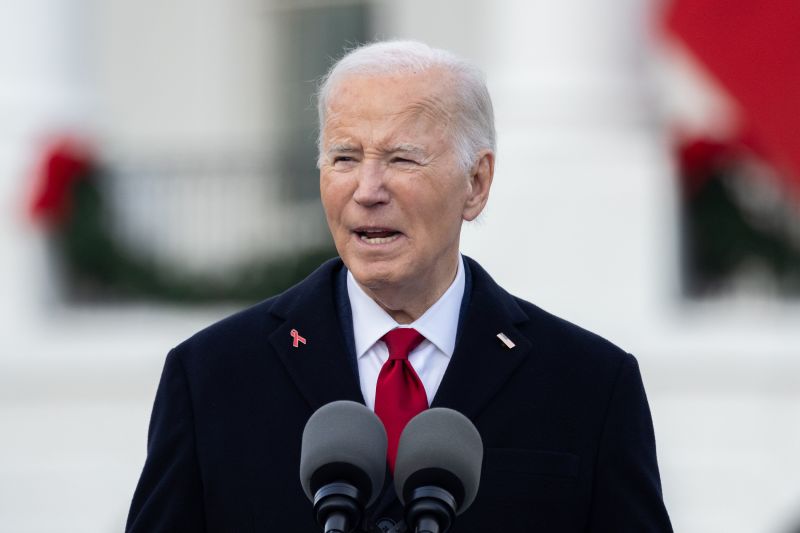
Biden’s Pardon of Hunter Biden Sparks Political Firestorm and Raises Justice Concerns
In a dramatic move that has intensified political tensions, President Joe Biden granted a full and unconditional pardon to his son, Hunter Biden, just days before he was set to face sentencing for serious legal charges. This controversial decision, which seemed to go against Biden’s earlier stance of not intervening in his son’s legal battles, has reignited claims from Donald Trump and his allies that the U.S. Department of Justice (DOJ) has been politicized for personal and political gain.
Hunter Biden, who was convicted earlier this year on charges of illegally purchasing a firearm and evading taxes to the tune of $1.4 million, was facing lengthy prison sentences for his crimes. The gun charge alone carried a potential 17-year sentence, while the tax evasion charge could have led to up to 25 years in prison. In addition to these criminal convictions, Hunter was embroiled in accusations of using his father’s political influence for personal business gain, particularly in Ukraine and China, during Joe Biden's tenure as vice president and beyond.
Also Read:- XRP Surges to Fourth Spot After $100 Billion Post-Election Rally
- Michael Caine's Support for New Election Raises Alarming Concerns
Despite earlier promises to keep the Justice Department independent and free from political interference, Biden's pardon of Hunter has raised serious questions about the impartiality of the U.S. legal system. Critics argue that the decision undermines the principle of equal justice under the law, a concept that has always been central to American democracy. By intervening in his son’s case at the last minute, President Biden has made a stark departure from his previous assurances that his administration would not shield family members from legal consequences.
The political ramifications of this pardon are far-reaching. Donald Trump, who has repeatedly accused Biden of weaponizing the Justice Department, has seized on this moment to claim that the system is rigged and that the current president is no different from his predecessor in using presidential powers for personal and political protection. The pardon not only absolves Hunter of his legal troubles but also raises the possibility that Biden may have been seeking to shield him from further scrutiny over his business dealings abroad, particularly in light of the ongoing questions about his ties to Ukrainian and Chinese companies.
Republicans, especially those loyal to Trump, have been quick to label the pardon as a blatant example of the politicization of justice. They argue that it shows how deeply entrenched political power is in shaping legal outcomes, with Biden using the pardon power to protect his family from legal repercussions. This sentiment has been echoed by many who believe that Biden’s intervention only strengthens Trump’s accusations that the DOJ has been weaponized against him and his supporters.
Moreover, the timing of Biden’s decision has added another layer of complexity to the political landscape. As Trump prepares for a potential return to the White House, some are speculating that the pardon may have been issued in anticipation of a more aggressive approach to political retribution under a second Trump administration. Trump himself has already hinted at using his own pardon power to grant clemency to those convicted in connection with the January 6 Capitol riots, adding fuel to the debate over the fairness and integrity of the justice system.
The question remains whether Biden's pardon will be viewed as an act of familial loyalty or a political misstep that tarnishes his legacy. As the political fallout continues to unfold, the U.S. Justice Department’s credibility and its ability to function independently remain under intense scrutiny, leaving many to wonder whether the actions of both political parties have irreparably damaged the public's trust in the system. With Hunter Biden now absolved of his legal troubles, all eyes are on the broader implications for the future of American justice and political power.
Read More:

0 Comments